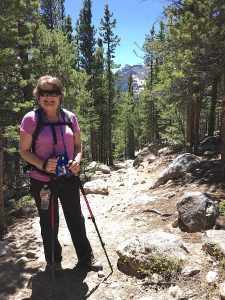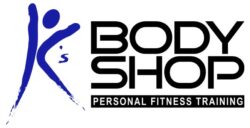
Donna G. loves to hike, especially in the Rocky Mountains of Colorado, where her sister lives.
Three years ago, Donna broke her ankle on a hike. That’s when doctors discovered she has neuropathy – weakness and numbness due to nerve damage – in most of her legs.
Doctors told her they couldn’t regrow the nerves, but Donna was determined to not let the condition get the best of her. She decided to start exercising and visited some of the large, chain gyms near her home. But they were crowded with young hardbodies and trainers telling her to lift as much weight as possible.
She left frustrated.
“I had to do something,” she recalls.
What Is Neuropathy?
About 30 million Americans have “peripheral neuropathy,” according to the Foundation for Peripheral Neuropathy. Men get it a bit more than women, and the risk is higher for mature adults.
Neuropathy refers to disorders due to damage to the nervous system. Numbness and pain can occur, particularly in the feet and hands.
It has a range of causes, such as diabetes, traumatic injury, inflammatory infections, protein abnormalities, poor nutrition, exposure to toxic chemicals, and others.
“The best way to prevent peripheral neuropathy is to manage medical conditions that put you at risk, such as diabetes, alcoholism or rheumatoid arthritis,” says the Mayo Clinic.
Regular exercise and proper diet also help prevent it.
And even after diagnosis, exercise can help reduce the pain of neuropathy and help fight other symptoms. Fitness also can improve muscle strength and help control blood sugar levels. Other lifestyle factors play a role, including proper nutrition and rest. So do giving up smoking and excessive drinking.
Early diagnosis is important. See your doctor if you experience symptoms of neuropathy like the gradual onset of numbness or tingling in your feet and hands; extreme sensitivity to touch; lack of coordination and falling; and muscle weakness.
How Fitness Helped
Donna doesn’t know what caused her neuropathy. But she knows what finally helped.
After that frustrating experience with big gyms, a friend referred her to a small independent studio in May 2018. Donna has been in small group training sessions ever since.
“I loved it and saw results almost immediately,” says Donna, now 62. “I couldn’t do jumping jacks or walk a straight line when I started. I couldn’t even pick my grandbaby up off the floor.”
Her success is an inspiration to others at the studio, says the studio owner. “Donna applies the benefits of her training program in almost all that she does.”
Donna’s training has given her upper-body strength, her balance has improved, and she’s able to enjoy the activities of daily living more. That includes picking up the baby, and Donna has hiking trips planned over the next several months.
“I am aware of my limitations and what I can do to help – because of what they’ve taught me,” she says. “It’s fun. It’s totally positive. I wasn’t going to stop walking!”
Your Next Step
If you’d like to see if starting an exercise program can help improve your quality of life, sign up for a free consultation today and we can discuss your situation in more detail and consider what options would work best for you. I have more than 22 years of experience as well as an advanced degree in kinesiology and multiple fitness certifications. I’d be happy to help you find a solution to get the results that you want!
